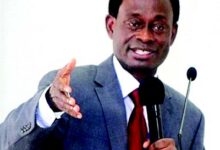PARLIAMENT is the corner stone of any functional democracy and Ghana’s has served that purpose since it gained independence from colonial masters, England in 1957. Some of Parliament’s functions are law making, oversight of the executive, authorising the granting or receiving of loans, monitoring the country’s foreign exchange receipts and payments or transfers and representation of the people.
Suspended anytime there was a coup d’état, Ghana boasts of its longest run of uninterrupted parliamentary democracy over twenty-seven years since it returned to constitutional rule in 1993; seven Parliaments in total.
Legislative democracy in Ghana dates back to 1951 when the Legislative Council, as Parliament was then called, made up of 75 elected Members, three nominated ex-officio Members and six special Members, served as an advisory body to the Governor of the Gold Coast.
In 1954 when the Gold Coast inched towards impendence, the Transitional Constitution provided for an Assembly of a Speaker and 104 Members elected on party lines on the basis of universal adult suffrage, setting the tone for citizen participation in the election of their representatives. The importance of that Parliament will forever be etched in gold as the body which actually pushed for the early independence of the country.
As Ghana marks 62 years of independence, we trace the evolution of the legislature to its present state and its importance to the practice of democracy in the country.
THE FIRST REPUBLICAN PARLIAMENT
The First Parliament of the Republic of Ghana – the National Assembly – was constituted in 1960 with 104 seats. With Joseph Richard Asiedu as its Speaker, the Convention Peoples Party (CPP), the governing party at the time, had 71 seats with the United Gold Coast Convention controlling the rest.
Following the declaration of a one party state which was backed by the 1964 referendum, the CPP became the only party in the National Assembly Election held in 1965, ostensibly becoming the only political party represented in the House. The reconstituted Assembly had the late Aaron Eugene Kofi Asante Ofori-Atta as the Speaker.
A year on, Kwame Nkrumah, the then President of Ghana was overthrown in a coup d’état in 1966 by the military ending the life of that Parliament and by extension that republic.
THE SECOND REPUBLICAN PARLIAMENT
After three years of military rule, Ghana returned to civilian rule in 1969 with the election of Dr. Kofi Abrefa Busia of the Progress Party (PP) as the Prime Minister. As one of the features of democracy, Parliament, still called the National Assembly, was reconstituted. The PP won 105 of the 140 seats which were up for grabs. The life of that Assembly, under the speakership of the late Nii Amaa Ollennu came to an end in 1972 when the military, led by Colonel Ignatius Kutu Acheampong, took power to establish another military junta.
THE THIRD REPUBLICAN PARLIAMENT
As the penultimate republic, participatory democracy returned to Ghana in the third republic which lasted between 1979 and 1981. Still with 104 seats, the People’s National Party (PNP) led by Dr. Hilla Liman won 71 of the seats in the polls held on June 18, 1979 to form the Majority in the Assembly. That Parliament under the Speakership of Jacob Hackenbug Griffiths-Randolph was suspended in 1981 following the coup carried out by the Provisional National Defence Council (PNDC).
THE FOURTH REPUBLICAN PARLLIAMENTS
Demonstrative of Ghana’s gradual democratic growth, the Fourth Republic is the longest the country has had. With seven Parliaments already and counting, the Fourth Republic came into being in 1993 following the promulgation of the 1992 Constitution after eleven long years of military rule by the PNDC under the chairmanship of former President Jerry John Rawlings. Since then, the democratic path the country chose has evolved as political power has changed hands from the National Democratic Congress (NDC) and the New Patriotic Party (NPP).
After those eleven long years of military rule, the first Parliament of the Fourth Republic under the speakership of Justice Daniel Francis Kweipe Annan, which was constituted on January 7, 1993, had 200 Members. The then opposition NPP, following what it said was a stolen verdict in the November Presidential elections, boycotted the Parliamentary polls giving the NDC which had won the November 1992 presidential race a leeway to sweep 189 seats. The Convention Peoples Party and other small parties occupied the remaining seats in the chamber.
The second Parliament of the Fourth Republic, still under the Speakership of Justice Annan, saw the NPP win 63 out of the 200 seats against the NDC’s 131 to make its appearance to Parliament for the first time since the overthrow of Dr. Liman in 1981. The CPP, the Peoples National Convention (PNC) all won seats to complete the number.
In 2001, the NPP constituted the Majority in the third Parliament under the speakership of Peter Ala Adjetey by winning 100 seats to the NDC’s 94 as Ghana made another stride when power changed from the NDC to the NPP.
The number of seats in the 2004 electionS, by a Constitutional Instrument increased by 30 more. The NPP maintained its majority in the succeeding Parliament, the Fourth Parliament of the Fourth Republic, with Ebenezer Begyina Sekyi-Hughes as Speaker between January 7, 2005 and January 6, 2009.
On January 7, 2009, Ghana made history by electing a female, Justice Joyce Banford Addo, as its Speaker when the NDC returned to the Majority by winning 116 as against the NPP’s 107. The seats, however, increased to 275 in the Sixth Parliament between 2013 and January 2017. With long term Member, Edward Doe Adjaho elected Speaker, the NDC constituted the Majority with 148 seats compared to the NPP’s 122.
The table turned again in the 2016 elections when the NPP from opposition won 169 compared to the NDC’s 106 seats to form the Majority with Professor Aaron Mike Oquaye as Speaker.
BY JULIUS YAO PETETSI





